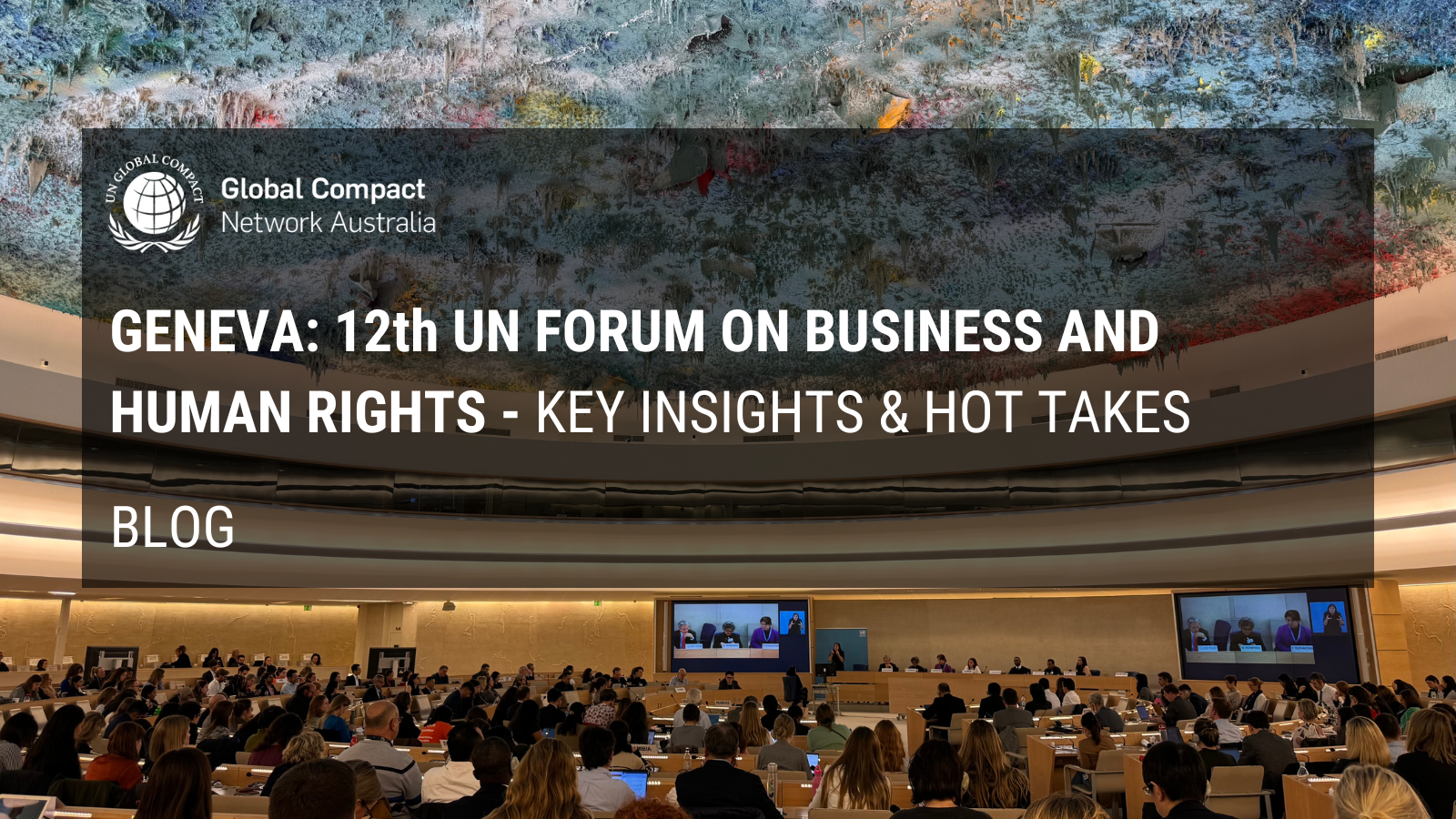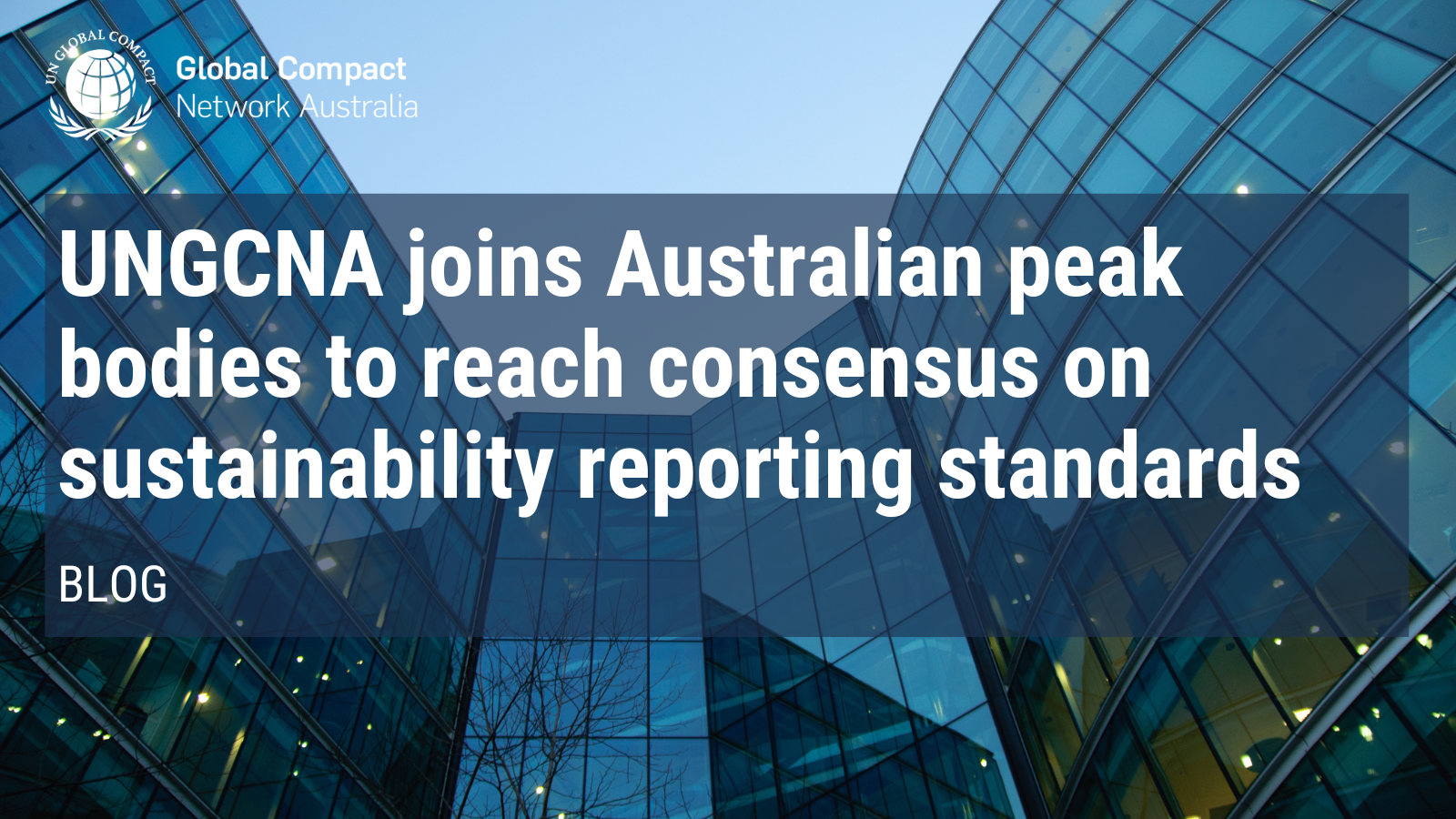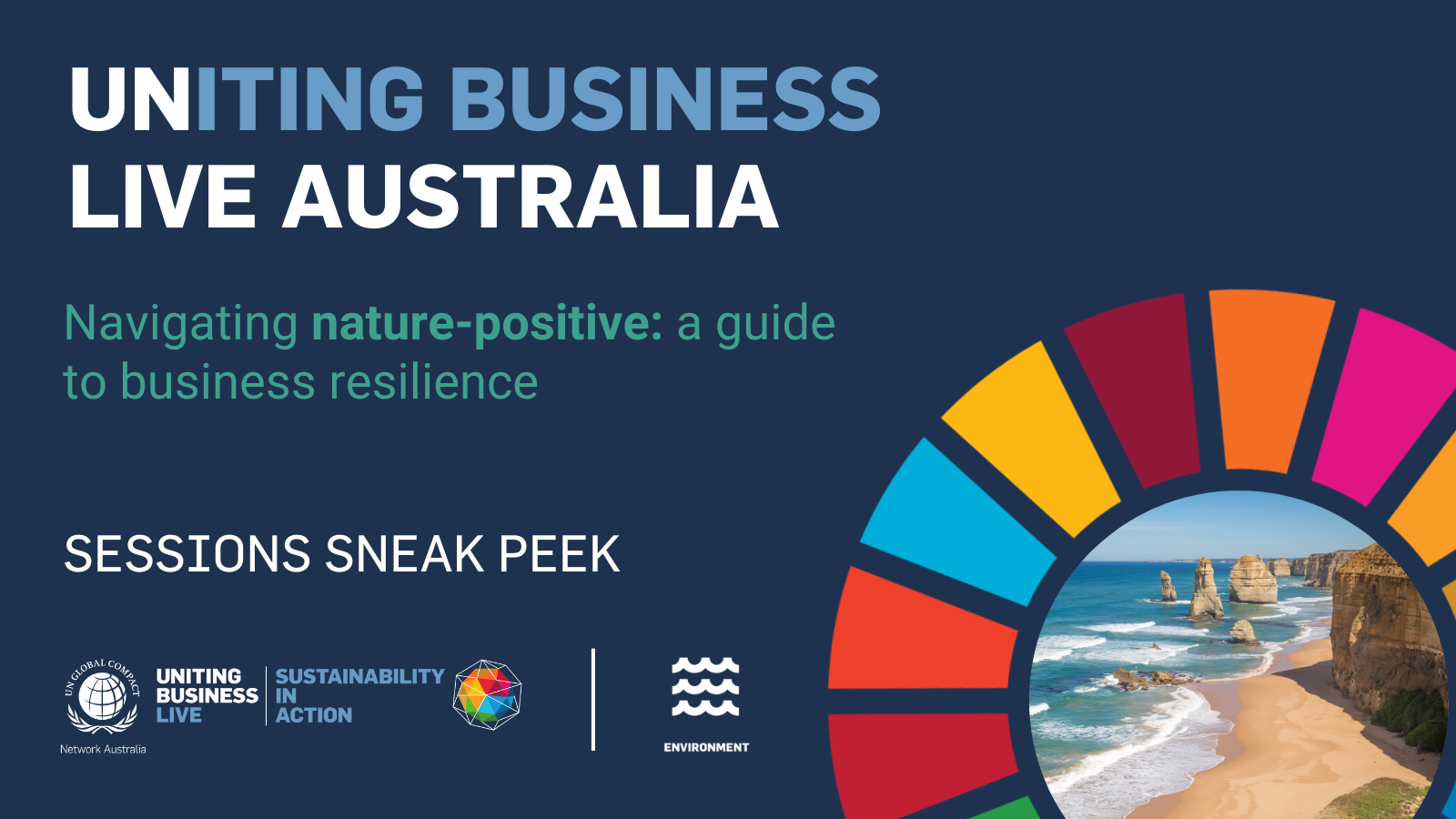
Blogs, Business & Human Rights, Featured, News
BLOG | 12th UN Forum: Key Insights and Hot Takes
Chris Caskey | December 1, 2023
On 27 – 29 November 2023, the UN Working Group on Business and Human Rights convened the 12th annual UN Forum on Business and Human Rights in Geneva. The theme for the 2023 Forum was Towards Effective Change in Implementing Obligations, Responsibilities and Remedies, with the agenda drawing hundreds of stakeholders from businesses, business associations, investor groups, academia, diplomats, civil society and human rights defenders from all over the world.
Our Manager, Human Rights at the UN Global Compact Network Australia, Chris Caskey, was live at the 2023 session. As the dust now settles in Building E of the Palais des Nations, our latest blog summarises key insights – and hot takes – from the Forum.
(Another) wake up call for the Global North
At the Forum, a number of human rights defenders reiterated that without proper engagement, empowerment and equity sharing with Indigenous communities, the race for critical minerals was beginning to resemble a “green colonisation”. Speakers called again on businesses to adopt engagement practices with Indigenous communities that align with the right to free, prior and informed consent, and that lasting equity is not possible without sharing profits.
Human rights and environmental defenders also reiterated their willingness to engage with companies on climate adaptation and mitigation, noting that their traditional knowledge of the land and coastal areas goes back centuries. Representatives outlined that this requires a paradigm shift – respecting the human right to self-determination actually means understanding that it is the duty of Indigenous communities to fulfil the guardianship role.
“Include us in your climate mitigation and adaptation plans – especially our women. You’ll find your business will be more sustainable – we are not a threat, we’re a partner. The way forward is to approach rights-holders in a manner that gives them dignity.” – Tevita Naikasowalu, Heir Defender Network, Fiji
The practice of offsetting emissions through the purchase of credits backed by projects in the Global South was also under the spotlight. Panellists highlighted that in addition to a lack of consultation, there are often various unintended consequences caused by offsets – such as distorting the local labour market or incentivising particular practices. One example posed was the situation of logging company workers in areas now protected as part of ‘avoided emissions’ offsets. Panellists noted the same is true for outsourcing operations – if you outsource a call centre to the Global South, you create hundreds of commuters taking fossil-fuel driven transport to work.
“When companies and countries offset and outsource they are actually intervening in local labour markets – without assessing or addressing the human rights impacts.” – Wanun Permpibul, Executive Director at Climate Watch Thailand
“The last thing we need is policy-maker creativity”
In the opening session, speakers challenged the emergence of varying due diligence laws and regulations, noting that the international frameworks that oblige companies to take action on human rights are already clear. Panellists noted that when looking at the UN Guiding Principles on Business and Human Rights, the International Labour Organization Tripartite Declaration and the OECD Guidelines on Responsible Business Conduct for Multi-National Enterprises; the due diligence expectations are clear. Where the challenge lies, is in States and regions adopting their own tailored approach, adding to the complexity faced by the private sector.
“We always call for the ‘smart mix’! But with an abundance of non-binding standards as well as similar but different binding standards: they’re not so smart.” – Christine Kaufmann – Chair, OECD Working Party on Responsible Business Conduct
We’re closer than ever to practicing human rights due diligence with an environmental lens
Many companies have been working to understand how the right to a clean, healthy and sustainable environment applies within their business context. Recognising that climate change is a human rights issue and further that company emissions serve to accelerate the climate crisis, the United Nations Development Programme (UNDP) and the UN Working Group on Business and Human Rights released the latest draft of a guidance note on how companies can consider human rights due diligence in the context of their environmental impact. Download the draft and find out how to provide feedback here.
Rejecting politicisation when assessing conflict-related risks is essential
Multiple sessions at the Forum considered the risks posed by doing business in conflict-affected areas. Speakers noted that while politicisation is a reality of doing business, human rights practitioners should be careful to ensure that assessments of risks to people are as free from political influence and bias as possible. Panellists also highlighted that this issue is amplified by the frequent inability to connect with local partners: either to engage with local rights-holders or provide an independent view of the situation.
“We’ve spent a lot of time considering responsible exit, but as the economy is crucial to peacebuilding, who’s talking about responsible entry?” – Sam Jones, President & Co-founder at Heartland Initiative
Speakers also noted that for investors, engaging companies on their exposure to conflict-affected areas presents the risk that they are seen to be taking a particular stance.
“Every conflict situation is characterised by its own history and specificity – investors need to move away from this reactive mode – to better understand how a full portfolio is potentially exposed. This requires a geopolitical approach backed by international standards.” – Gerald Pachoud, Managing Partner, Pluto & Associates
When assessing and communicating salient issues, language matters
Throughout the Forum, attendees heard from various companies – including Newmont, HP, Nestle, L’Oreal, Novartis, ANA, Google and many more, on their efforts to assess and address human rights. On Day Three, speakers addressed the evolution of the analysis required to prioritise the most severe human rights impacts, noting that engaging civil society and trade unions is crucial – especially as the language used in the assessment often does not translate neatly.
Panellists also unpacked the practice of disclosing the results of the assessment, noting that taking a rights-based frame (i.e. the right to life) or thematic based frame (health and safety) is ultimately of no importance. What matters, is the actions taken to address impacts.
“What is the role of the company in driving those impacts? So often we see a great analysis of the problem – of the impact, what’s happening on the ground. What we don’t often understand is what is the company’s role in driving those impacts. What this means, is that their actions are often on the edges of trying to solve the problem.” – Irit Tamir, Senior Director, Private Sector Department Oxfam America
Businesses are building norms that matter
With businesses now in the process of building international due diligence frameworks, it’s increasingly clear that companies play a role in advancing international norms. What this means, is that the business and human rights practice is no longer just a risk management function: it’s an essential function that guides company strategy, operations and external engagement in order to ensure the organisation meets baseline international standards, has access to and is competitive in as many markets as possible.
“A human centred approach is the only way towards the future we want.” – Volker Türk, United Nations High Commissioner for Human Rights
As business and human rights practitioners, we should always remember that we are driving the human centred, global approach within our company. A notion that anyone who observed the private sector descend on Building E of the Palais des Nations will not quickly forget!




